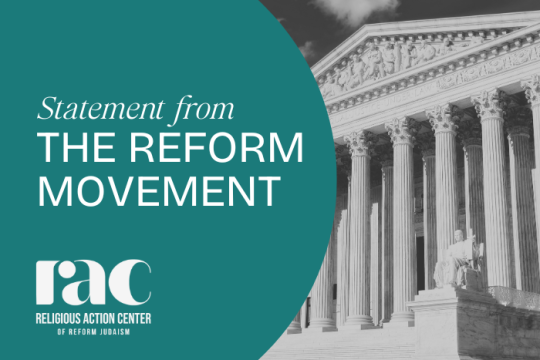June 26, 2024 - In commemoration of Juneteenth, the Commission on Social Action (CSA) of Reform Judaism released a groundbreaking new toolkit on reparations for Reform Jewish congregations and communities across the U.S. The toolkit was created to help congregations act on the Resolution adopted by the Union for Reform Judaism in 2019. Among its provisions, the Resolution committed to ongoing assessment and evaluation to strengthen the Reform Movement's efforts to combat implicit and explicit bias and promote racial equity.
"We recognize that, as Jews, our own history of oppression calls us to lead this effort to redress the historic and continuing effects of slavery and subsequent systemic racial, societal, and economic discrimination against Black Americans," said Barbara Weinstein, Director of the Commission on Social Action. "Reparations are an important part of advancing racial and reparative justice in our society, and we hope this toolkit will play a vital role in guiding our congregations and leaders as they learn and build support for reparations within their communities."
Intended to serve both as a resource to congregations and as a guide for individuals seeking to learn more and deepen their engagement, the toolkit provides an in-depth and comprehensive look into the history of reparations, explores the positive impact reparations can have on historically marginalized groups, and includes multiple examples of how groups and organizations across the U.S. have instituted reparations initiatives. The toolkit concludes with a thorough list of opportunities for individuals to get involved in the work.
"If not now, when? We must act now, to ensure that reparations are not only studied but also implemented in our lifetime," said Yolanda Savage-Narva, Vice President of Racial Equity, Diversity, and Inclusion at the URJ. "We know that there is no amount of money that can be paid to right the wrongs of the many atrocities and injustices that have warranted the payment of reparations. But to truly begin to heal the wounds caused by over four hundred years of inequities and dehumanization, acknowledgment, a truth and reconciliation process, apology, and reparations would be places to start."
##########

